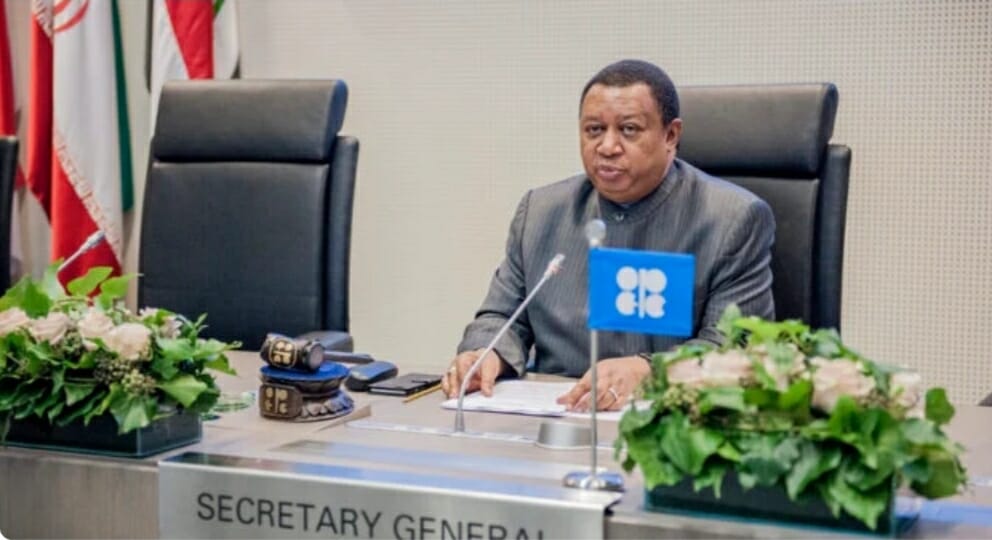The Organisation of Petroleum Exporting Countries (OPEC) has stated that crude oil will continue to be the leading source of energy for decades.
Recall that Brent crude, the global oil benchmark, climbed to $80 per barrel on Tuesday – its highest level since 2018.
Speaking on Tuesday at the presentation of 2021 OPEC World Oil Outlook (WOO), Mohammad Barkindo, the organisation’s secretary-general, said global primary energy demand is expected to increase by 28 percent in the period between 2020 and 2045.
He said energy would be needed to power more homes, services, businesses, equipment, among others.
“This will require the use of all forms of energy to support the post-pandemic recovery, the energy transition and address long-term energy needs,” Barkindo said.
OPEC projected that global oil demand will rise by 17.6 million barrels per day (bpd) in two-and-a-half decades, growing to 108.2 million bpd in 2045 from 90.6 million bpd in 2020.
The oil cartel said that annual oil demand growth will average 2.6 million bpd during the first five years, before slowing to 600,000 bpd from 2025-2030 and then 300,000 bpd from 2030-2035.
He said that in the outlook, renewables witnessed the largest growth, rising from a global fuel share of around two percent in 2020 to over 10 percent by 2045.
“It is important to note that OPEC member countries are making significant investment in renewables as they look to diversify their energy mix,” Barkindo said.
“Gas sees the second largest growth, driven in part by higher urbanisation rates, industrial demand and its competitiveness over coal in power generation.
“In fact, all energies are set to witness growth, with the exception of coal. It is oil, however, that retains its number one position in the energy mix. It is still expected to provide 28 per cent of global energy needs by 2045.”
Barkindo said it was clear that the world would need more energy in the decades to come.
He also said that the global economy had been estimated to be more than double as the world population was set to expand to 9.5 billion.
Barkindo added that there was huge potential for socio-economic development in terms of expanding access to modern energy services for the billions of people who continue to go without the required development.

